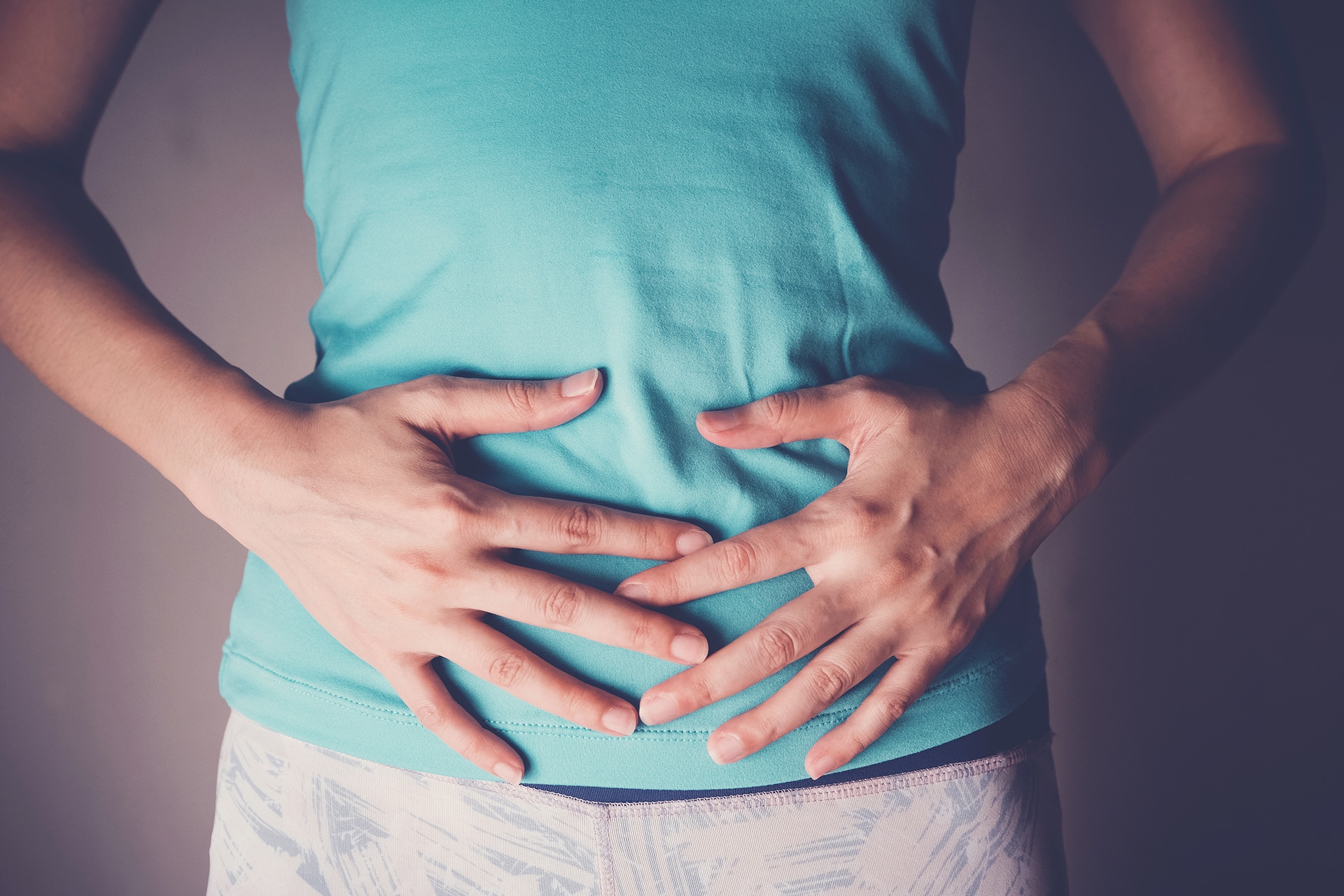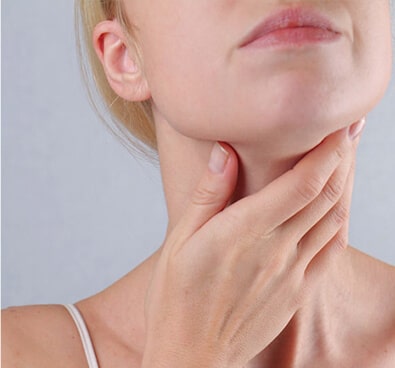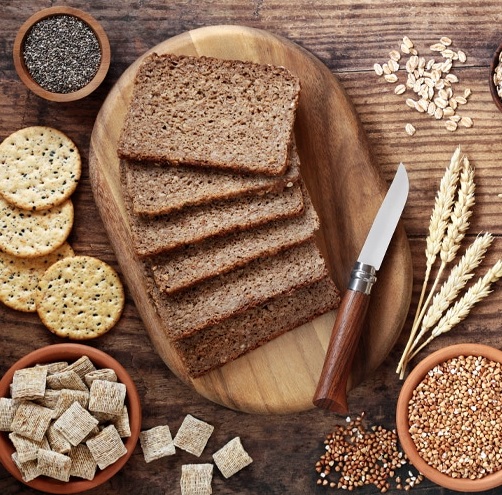
When you cut calories and increase your activity level, you may lose a lot of weight; however, over time, your weight loss may slow down dramatically or entirely stop. Below, we review eight common reasons why you can’t lose weight. It will help if you plan to overcome these to lose those excess pounds once and for all.
Mindless Eating
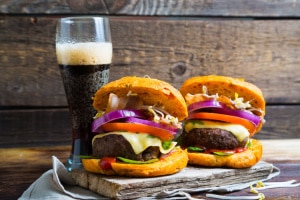
Have you ever reached into a chip or cookie bag only to find it empty at the movie’s end? Mindless eating is one of the key reasons that could sabotage your weight loss efforts. Distracted eating is associated with high Body Mass Index (BMI). When you mindlessly snack, the connection between your mind and body can be distracted, and you do not realize the cues that you are satisfied and full.
Avoid sitting in front of the television or using electronics when eating. Instead, enjoy your meal, savoring each morsel. Take the time to chew each bite rather than wolfing your food down quickly. Slowly chewing your food allows your body and mind to work together and tell you when you have eaten enough food.
If you will be eating in front of your computer or television, fix your plate or place your snack in a bowl rather than bringing a bag of snacks to your desk or couch. Doing so will help you control your portion sizes and reduce calories consumed at meal or snack time. When choosing snacks for movie time, opt for air-popped popcorn, rice cakes, or another low-calorie snack.
Overestimating How Many Calories You Burn
Weight loss occurs when you burn more calories than you consume. To determine the number of calories you should eat, you must calculate your resting basal metabolic rate. This rate is when your body uses energy for essential functions while you are at rest. Several good online calculators help you determine your resting basal metabolic rate.
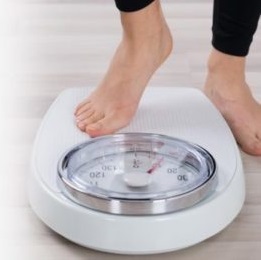
Your resting basal metabolic rate covers approximately two-thirds of the total energy burned daily. In addition, you should consider your activity level and the number of calories burned from your exercise. If you burn fewer calories than you consume, you will gain weight. Conversely, you will lose weight if you burn more calories than you consume.
When you first begin exercising, you may think you are burning more calories than you are. Look up the type of activity you are doing to help determine your calorie expenditure. Counting calories and calculating your daily calorie burn will help you successfully lose weight.
Portion Sizes
In today’s world, portion sizes are much larger than in the past, resulting in excess calorie consumption. Relearning correct portion sizes is one of the first things you should do to lose weight. The best way to remember the serving size is to look at your hand. Some quick portion guidelines could be as follows-
- Fats and sweeteners should be the size of the tip of your thumb (one teaspoon).
- Cheese spreads and dressings should be the size of your thumb (one tablespoon).
- Proteins like tofu, red meat, fish, and chicken should be about the size of the palm of your hand.
- Milk, ready-to-eat cereals, soups, and salad greens should be about the size of your fist.
- Fruits, vegetables, grains, lentils, and beans should be about half the size of your fist.
Another way to help with portion sizes is to create a meal plan and keep a food diary. These will help you better understand how many calories you consume daily. After a few weeks, you will begin to see patterns in your eating habits and be able to spot empty calories that could be sabotaging your weight loss efforts.
Finally, eat on a set schedule as your body will realize you will provide adequate nutrition throughout the day. For best results, eat five or six small meals throughout the day rather than three large meals, which will help prevent you from getting hungry and overeating.
Skipping Meals
Many people on a weight loss journey think the best way to lose weight is to skip meals and eat small amounts of food. While skipping meals may seem like a great way to cut calories, your body requires a certain amount of calories and nutrients. If you deprive yourself, your body will begin releasing excess hunger hormones to make you crave food.
When this occurs, you will binge. Typically, bingeing involves eating unhealthy, calorie-laden junk food rather than nutrient-dense foods, which can cause several nutritional deficiencies. These deficiencies can slow your metabolism and cause the body to store fat for future energy.
Eating meals throughout the day at regular intervals can help you avoid overeating. Regular meals will give your body the fuel and nutrients to perform optimally. Try eating various foods throughout the day to ensure you get the vitamins and minerals your body needs.
Your Age
As women age, their estrogen levels begin to decline as they transition into menopause. Reduced estrogen levels may cause reduced muscle mass. Studies have shown that after age 30, women lose between 3 and 8 percent of their muscle mass every decade. As your muscles burn more calories than your fat, it helps to increase your muscle mass.
Menopausal women typically gain more body fat as they age. Additionally, post-menopausal women need fewer calories. The natural changes in a woman’s fat tissues can also cause weight gain. So, what can you do to fight the effects of aging on your weight?
Although you cannot control your age and the effects of aging on the body, you can develop healthy habits that can help you lose weight and keep it off. First, you want to eat a healthy diet and avoid sugar-laden and processed foods. Increase your consumption of vegetables to help satisfy your hunger to help prevent you from overeating.
You should also add strength training exercises to help rebuild any lost muscle. If you have never done strength training, don’t worry. Many options include resistance bands, free weights, and weight machines. You do not need to bulk up to get the benefits of increased muscle mass. You can create lean muscle by using light weights and doing multiple repetitions. Leg lifts, push-ups, sit-ups, and bridges can all help increase your muscle mass.
Your Genes And Weight Loss

The FTO gene doesn’t affect your metabolism; instead, it affects your satiety. This gene causes you to take in more calories than your body needs, which is good news because your metabolism hasn’t slowed down; you are simply eating the wrong amount of food per meal. The FTO gene regulates ghrelin, which is a hormone that controls satiety.
Individuals without the FTO gene stop eating when they start to get packed. Those with the gene do not get the satiety cues and must teach themselves to notice the signs of fullness to know when to stop eating. So, how can you lose weight if you have this gene?
First, you need to change your eating habits. Begin eating at least five servings of vegetables and a few servings of fruit daily. For best results, eat fresh or frozen vegetables rather than canned ones, typically laden with salt and stripped of most nutrients. Incorporate whole foods and skip processed foods. In addition to fruits and vegetables, incorporate whole grains, seeds, and nuts into your diet. Following these tips can help you lose weight despite your genetic makeup.
Your Digestive Tract Is Unhealthy
Your gastrointestinal tract houses trillions of beneficial microbes, making up your gut microbiome. A diverse microbiome contains different kinds of bacteria. Each of these bacteria performs a distinct function in your digestive system, including digestion, satiety, and metabolism.
If your microbiome becomes imbalanced, dysbiosis occurs. When the beneficial bacteria in your digestive system decrease, pathogens can overwhelm the digestive tract, resulting in several issues, including digestive disturbances, nutritional deficiencies, reduced metabolism, and much more.
Studies have shown that individuals with a less diverse gut microbiome are at an increased risk of having a higher BMI (body mass index) than those with a more diverse microbiome. Combining probiotics and prebiotics can help prevent weight gain and may help with weight loss.
You can take probiotics daily; however, if you do not feed the beneficial bacteria in your gut, they will not be able to increase in your digestive tract and overcome the harmful bacteria in your digestive tract. So, how do you feed the beneficial bacteria? With prebiotics!
Prebiotics are a type of fiber found in fruits and vegetables. They feed the beneficial bacteria in the digestive system. Eating prebiotic-rich foods and taking a probiotic supplement containing several probiotic strains can heal your digestive system, rebalance your gut, and increase your metabolism.
Eating probiotic-rich foods is another great way to increase the number of beneficial bacteria in your gastrointestinal tract. Some of the top probiotic-rich foods include kimchi, sauerkraut, yogurt with live cultures, and kombucha.
Medicine Side Effects
Certain medications may cause weight gain or interfere with your weight loss efforts. Some individuals may feel fatigued, have a change of appetite, or your body may retain water. It would be best to talk to your doctor before changing any medications. There are also numerous natural ways to help with chronic conditions like diabetes, high blood pressure, and depression, including dietary changes, stress management techniques, and natural remedies. One of the best ways to counteract the side effects of medicine is to heal your body from the inside out.
Seek Help for Healthy Weight Loss
An integrative or functional medicine doctor understands how every system in the body must work together to promote good health. Your doctor will help address the root cause of your illness and harness the body’s innate ability to heal itself. They will partner with you to create a comprehensive treatment plan to heal your body from the inside out through health coaching, supplementation, healthy lifestyle modifications, dietary changes, stress relief techniques, and more.
Do you wonder, “Why can’t I lose weight anymore?” Weight loss is difficult, but it is not impossible when you know what may be hindering your efforts. Eat several small meals throughout the day, incorporate a variety of vegetables and fruits to help provide your body with the nutrients it needs, and get daily exercise to increase your metabolism and reduce your weight.


